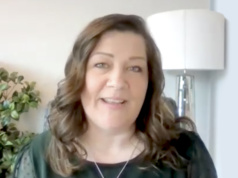Crossroads
Home Crossroads
Senior Moving: How Do You Start?
Moving can be a daunting chore at the best of times, but downsizing a senior whose been living in their house for 50 years can be overwhelming. Suzanne is joined by Sean Joseph, CEO of Jordan River International Moving & Storage, a nationwide firm that specializes in working with seniors.
What Happens If I Outlive My Money?
Tina Hall from Era Living talks about planning for your future as you age. Ultimately equity in your home will probably pay for your senior care, but what if it's not enough?
Checklist for Senior Legal Paperwork
Kelley Smith at CarePartners Senior Living joins Suzanne to present a checklist of items to review each year regarding your legal paperwork, to make sure they're still current.
Tips to Facilitate a Senior Home Sale, Part 2
Suzanne is joined by Rebecca Bomann, CEO of SASH Services, for more tips on selling a senior loved one's home: get your legal paperwork in order, and choose professionals who understand the delicacy of talking to someone who has advancing dementia or Alzheimer's.
Family Dynamics During a Senior Home Sale, Part 1
Family plays an outsized role during transitions. With all the stress, strife, and confusion for caregivers, it's easy to come apart at the seams with the family you love, particularly since it's the family home that's going to be sold. Rebecca Bomann, founder and CEO of SASH Services, joins Suzanne to explain a few things that happen to families during transitions so that you'll know what you're experiencing is normal.
How Unscrupulous Home Sellers Exploit Seniors
This hour focuses on ways that senior homeowners can be taken advantage of during the process of selling their home. This is the sale of their biggest asset to be able to pay for their care for the rest of their life, which they may have lived in for many decades, and the biggest financial transaction of their retirement years. Rebecca Bomann, CEO and founder of SASH Services, joins Suzanne to delve into this important topic for senior homeowners as well as their family members and caregivers.
Tips For When a Parent Moves: Their Pet
Adult children and their aging parents have wildly differing perspectives on moving. This segment builds a bridge to understanding each others' perspectives when it comes to the senior loved one's pet, which befuddles many adult children. Adult children are thinking of a monthly budget, trying to make funds last as long as possible, and are concerned about how that's affected by an animal's daily care, walks, feeding, medication, and vet care. Mom, however, sees the pet as a family member who gives joy, love, companionship, and comfort.
How to Begin Decluttering, Part 1
Kelley talks about how we can help our parents and ourselves so we don't leave a lot of clutter for our own children to deal with. When a family member downsizes from a 2,000 square foot home to a 900-1200 square foot retirement apartment, or to an independent living or assisted living apartment, now you're looking at 500-700 square feet of space, or smaller depending on the apartment. You have to weigh what's important to keep, and it will be home — you want to bring your things so it feels like home. Many people in a home look at the challenge and don't even know how to begin downsizing. If you have a senior loved one, or have mobility issues, it can seem an overwhelming challenge. This hour will talk about how to begin, and what to expect regarding amenities when you move into senior living, and how can you leave a legacy for your community.
How and When to Intervene, part 1
Kelley Smith at CarePartners Senior Living joins Suzanne Newman to talk about how and when to intervene as an adult child or loved one of a senior who may need care. Families may be concerned about their role while honoring parents facing Alzheimer's or dementia. Kelley Smith says to best serve parents and grandparents, first understand what you need as well as what your parents need. When you have conversations, give them time to process so they aren't on the defensive. Create an open dialogue to figure out the next steps. Bring up that you noticed things are getting more challenging for them around the house. Casual conversations often work better than a scheduled meeting.





















